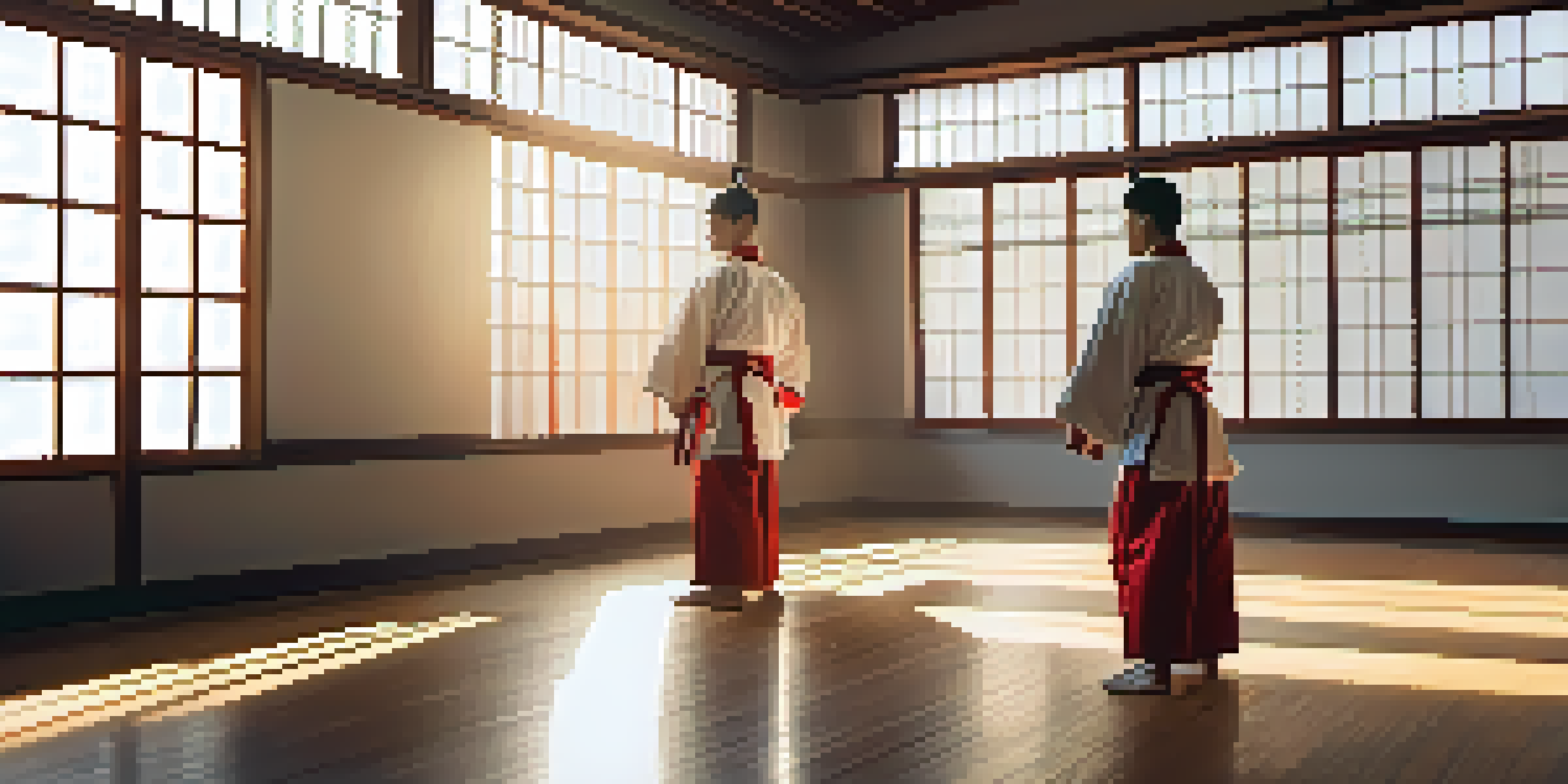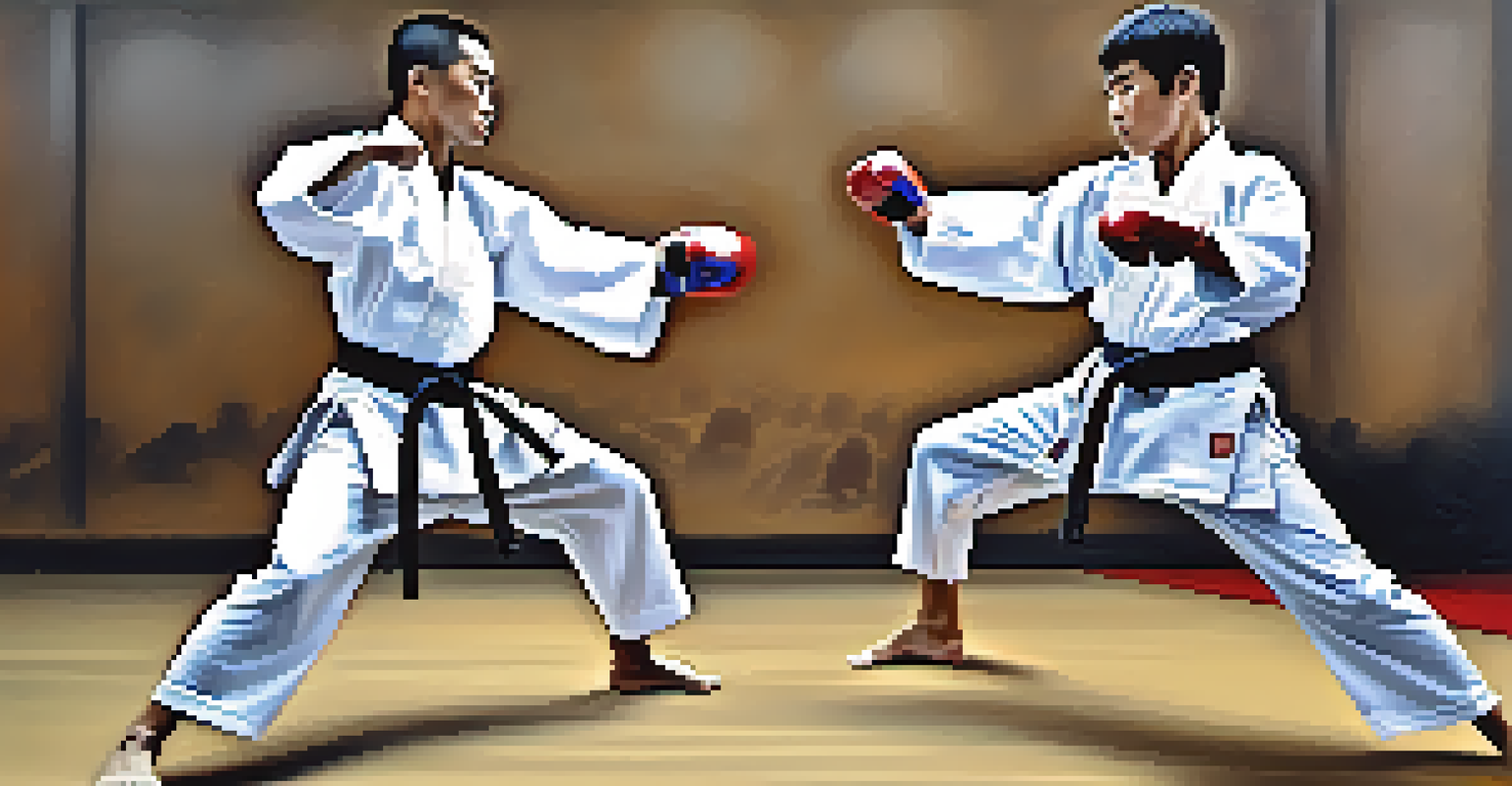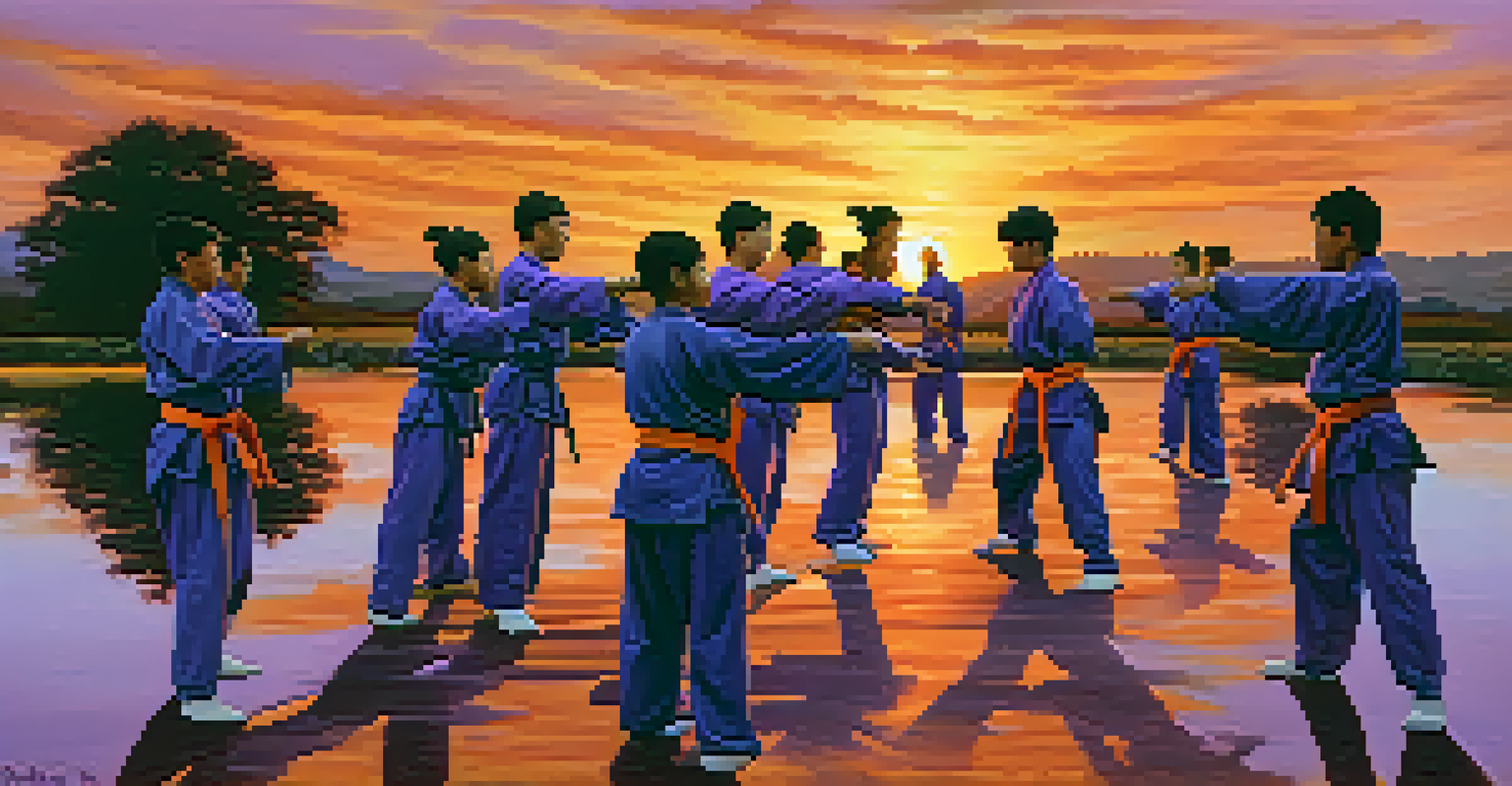Key Martial Arts Principles for Resolving Disputes

Embrace the Principle of Respect in Conflict Resolution
Respect is a foundational principle in martial arts, and it's equally important in resolving disputes. When we approach conflicts with respect for others, we create an environment conducive to open dialogue. This principle encourages active listening, allowing both parties to feel valued and understood, which can lead to a more amicable resolution.
In the middle of difficulty lies opportunity.
In martial arts, practitioners bow to each other as a sign of respect, acknowledging the worth of their opponent. Similarly, in conflict resolution, recognizing the other person's perspective can diffuse tension and pave the way for collaboration. By embracing respect, we shift the focus from winning to understanding, which is crucial for effective resolution.
Ultimately, respecting each party’s viewpoint fosters a sense of community and cooperation. This principle not only helps in resolving the current dispute but also strengthens relationships, making future conflicts easier to navigate.
Utilizing Adaptability to Navigate Disputes
Adaptability is a key skill in martial arts, allowing practitioners to adjust their techniques based on their opponent's moves. In dispute resolution, adaptability means being open to new ideas and alternative solutions. This flexibility can lead to unexpected breakthroughs, turning a potential deadlock into a win-win situation.

Consider a martial artist who encounters an opponent with a different fighting style. Instead of sticking rigidly to their own techniques, they adapt, finding effective ways to counter the opponent's moves. Similarly, in a dispute, being willing to change our approach can lead to finding common ground, even when the initial positions seem irreconcilable.
Respect Enhances Conflict Resolution
Approaching disputes with respect fosters open dialogue and understanding between parties.
By embracing adaptability, we not only enhance our problem-solving capabilities but also demonstrate a willingness to collaborate. This openness can encourage others to be more flexible as well, creating a more cooperative atmosphere for resolving disputes.
The Importance of Balance in Resolving Conflicts
Balance is crucial in martial arts, as it enables practitioners to maintain control and grace during movements. In the context of dispute resolution, balance refers to finding an equilibrium between assertiveness and empathy. This balance is essential for ensuring that all parties feel heard while also standing firm on important issues.
The greatest victory is that which requires no battle.
Think of a martial artist who must maintain balance while executing a complex move. If they lean too far in one direction, they risk losing control. Similarly, in a dispute, leaning too heavily on one side can escalate tensions. Striking a balance allows us to address the needs of both parties effectively, paving the way for resolution.
Moreover, achieving balance can foster a sense of fairness, which is vital for lasting resolutions. When all parties feel that their voices are respected and valued, they are more likely to support the final agreement.
Harnessing Focus to Resolve Disputes Efficiently
In martial arts, focus is essential for executing techniques effectively and avoiding distractions. The same can be said for resolving disputes: maintaining focus on the issue at hand helps prevent misunderstandings and unnecessary escalation. When both parties concentrate on the core problem, they can work toward solutions more efficiently.
For instance, if two martial artists get sidetracked by personal grievances during a sparring match, they might lose sight of their training goals. In disputes, personal emotions can cloud judgment and derail constructive conversations. By keeping the focus on the matter at hand, we can facilitate more productive discussions.
Adaptability Leads to Solutions
Being flexible in conflict situations allows for creative problem-solving and collaboration.
Additionally, a focused approach encourages clarity and transparency in communication. This precision not only minimizes confusion but also builds trust, essential components in successfully resolving disputes.
Applying Patience in the Dispute Resolution Process
Patience is a virtue often emphasized in martial arts training. It teaches practitioners to wait for the right moment to act, which is equally applicable in resolving disputes. Many conflicts take time to untangle, and rushing the process can lead to misunderstandings and further complications.
Imagine a martial artist who hastily attacks without observing their opponent. This impulsive action can backfire, resulting in defeat. In the same vein, hasty decisions in conflict resolution can lead to resolutions that don’t truly satisfy either party. By exercising patience, we allow time for reflection and dialogue.
Moreover, demonstrating patience can help to calm heated emotions. When parties see that they are being given the time to express themselves, it fosters a more respectful and thoughtful environment, paving the way for deeper understanding and more effective resolution.
Conflict Resolution Through Collaboration and Teamwork
In martial arts, teamwork is vital during training and sparring sessions, as practitioners learn from each other's strengths and weaknesses. This collaborative spirit is essential in resolving disputes, as it encourages both parties to work together toward a common goal. Rather than viewing the other party as an adversary, collaboration shifts the focus to problem-solving.
For example, in a dojo, students often pair up to practice techniques, relying on each other for feedback and improvement. In disputes, this collaborative dynamic can lead to creative solutions that might not have been considered otherwise. By brainstorming together, both parties can explore a range of possibilities for resolution.
Patience is Key in Disputes
Exercising patience during conflict resolution enables deeper understanding and prevents hasty decisions.
Furthermore, collaboration promotes a sense of shared ownership over the resolution process. When both parties contribute to finding a solution, they are more likely to commit to the outcome, fostering long-term harmony.
Learning from Each Dispute to Strengthen Future Resolutions
In martial arts, every match and training session is an opportunity for learning and growth. Similarly, disputes offer valuable lessons that can improve our future conflict resolution skills. By reflecting on what worked and what didn’t, we can enhance our approach to managing disagreements in the future.
For instance, a martial artist may analyze their performance after a competition, identifying areas for improvement. In the same way, after resolving a dispute, taking the time to review the process can reveal insights that inform future interactions. This reflective practice can boost our confidence and effectiveness in handling conflicts.

Additionally, sharing these lessons with others can create a culture of continuous improvement. Just as martial artists mentor one another, sharing experiences and strategies in conflict resolution can empower others to develop their skills, leading to more harmonious interactions overall.